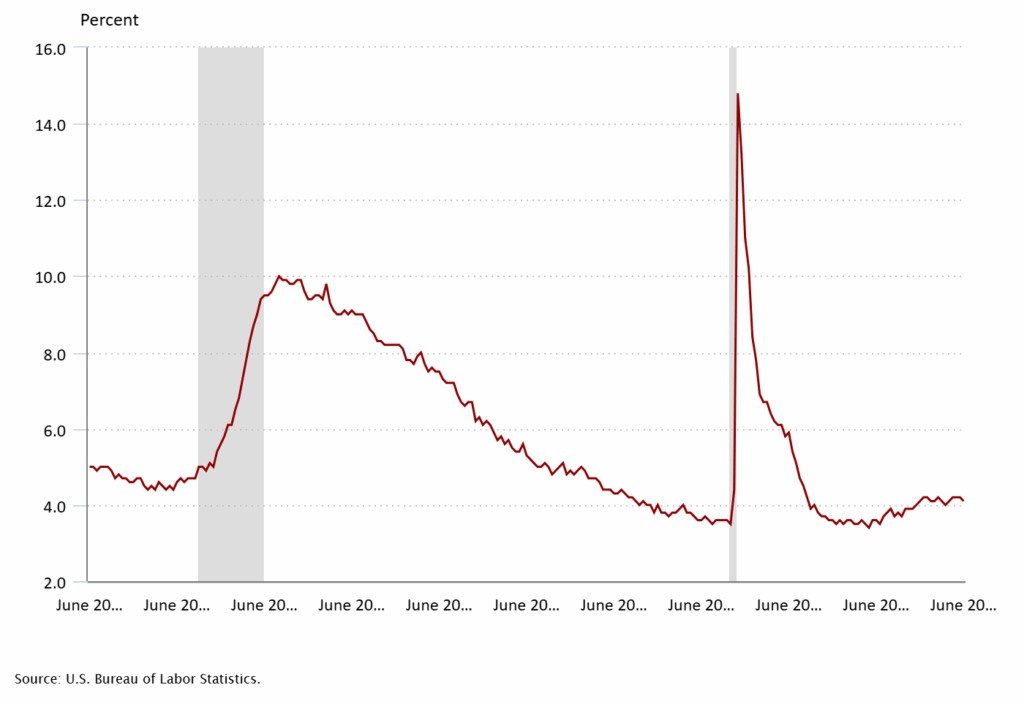The U.S. economy added 147,000 jobs in June, with the unemployment rate at 4.1%, down slightly from 4.2% in May. Average hourly earnings rose by just 0.2% year-over-year, and the average workweek shortened to 34.2 hours, indicating that employers are managing costs carefully. While job growth continued, the details reveal important shifts.

The government and healthcare sectors combined added 112,000 jobs, representing 76% of all job growth, while professional services and manufacturing each shed 7,000 positions.
This uneven growth pattern signals a changing landscape where some industries are thriving while others face headwinds. Here’s what both employers and job seekers in accounting, finance and HR should expect in the months ahead.
For Employers
“The hiring dynamic in the country has quietly gotten a little bit softer now,” says Rick Rieder, BlackRock’s chief investment officer. For accounting and finance employers, this signals a need for strategic thinking.
The 7,000 positions shed in professional and business services sector means employers who are still hiring have access to a deeper talent pool, including experienced professionals who may have been displaced from other organizations.
While overall hiring has slowed, companies with a genuine need for accounting and finance talent now have access to experienced professionals who may not have been available before. The challenge is identifying which candidates are the right fit versus those simply seeking any opportunity.
For employers still investing in their finance teams, this environment presents an opportunity to find seasoned professionals who bring valuable experience from other organizations. Organizations want to be deliberate about hiring, focusing on roles that will drive real value rather than filling positions for the sake of growth.
For Job Seekers
The other side of the job market coin? Candidates need to be more strategic than ever. “The job market continues to remain resilient, and that has been seen since the pandemic,” said Daniel Zhao, lead economist at Glassdoor. “But that doesn’t mean that it will continue to remain resilient. There are signs of softening underneath the surface.”
So, what does this mean for candidates looking to advance their careers? Strategy, strategy, strategy.
With professional services losing 7,000 positions and the average workweek dropping to 34.2 hours, competition is intensifying. The accounting and finance professionals who will dominate this market are those who understand one key principle: strategic positioning beats reactive job searching every time.
Networking and expert guidance are essential. Working with specialized recruiting firms isn’t just about finding your next role; it’s about positioning yourself strategically in a market where employers have choices.
This market rewards preparation, specialization and professional partnerships. The right opportunity is out there, but you need the right strategy to find it.
Ready to capitalize on this market shift? Whether you’re an employer seeking top-tier talent or a professional positioning for your next career move, our team knows exactly how to navigate today’s evolving landscape. Contact us today.








